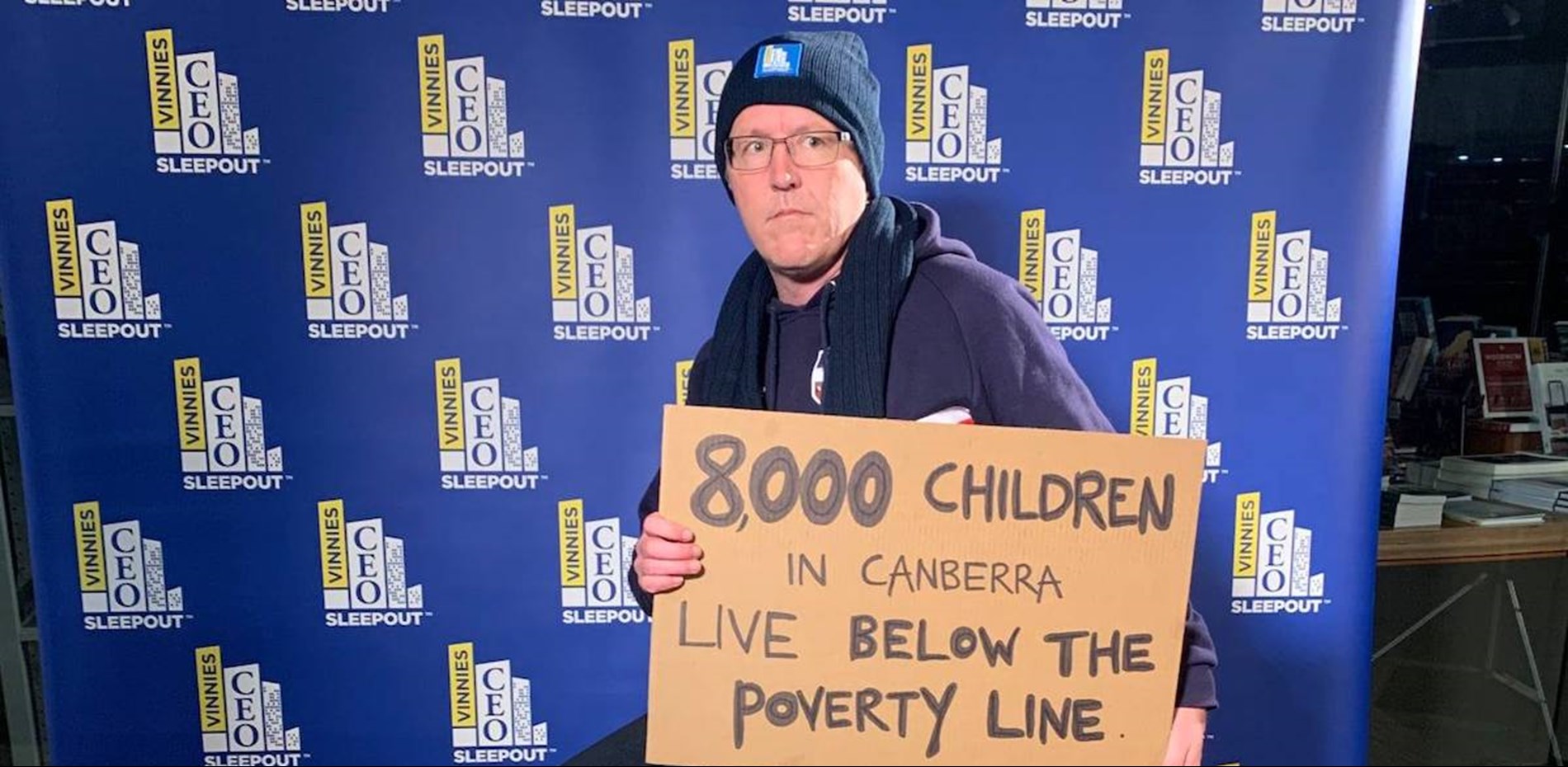HOMELESSNESS WEEK 2021
This week marks Homelessness Week in Australia–a week to help raise awareness of people experiencing homelessness and the action needed to help reduce it.
There are more Australians experiencing homelessness than ever before.
In Bean, there were 300 people estimated to be homeless on Census night in 2016.
David is a regular participant and supporter of the Vinnies sleepout and is driven to do more for those that are homeless locally.
“It is not good enough that too many in our local community are without secure, safe shelter”
“We know that many more in our community live in fear of homelessness with accommodation supply not meeting demand. For example, according to Vinnies in 2021, 8000 children in Canberra live below the poverty line."
The COVID-19 crisis has crystallised the urgency to deliver safe and affordable housing.
At a time when the need for social housing far outweighs supply, it is an important reminder that we must do more to support Australians experiencing homelessness.
If Labor wins the next election, we will establish the Housing Australia Future Fund, which will build social and affordable housing and help reduce homelessness across Australia. Over the first five years it will:
- Build 20,000 new social housing properties, including 4,000 homes for women and children fleeing domestic and family violence and older women on low incomes who are at risk of homelessness;
- Build 10,000 affordable homes for the heroes of the pandemic – frontline workers like police, nurses and cleaners that are keeping us safe;
- Provide $200 million for the repair, maintenance and improvements of housing in remote Indigenous communities, where some of the worst housing standards in the world are endured by our First Nations people;
- Invest $100 million in crisis and transitional housing for women and children fleeing domestic and family violence, and older women on low incomes who are at risk of homelessness; and
- Invest $30 million to build housing and fund specialist services for veterans who are experiencing homelessness or at-risk of homelessness.
After the first five years, a portion of the investment returns will be available to fund acute housing needs each year, in perpetuity. This funding will be used for additional crisis housing, transitional housing and long-term social housing in parts of the country with the greatest need.
Ends



